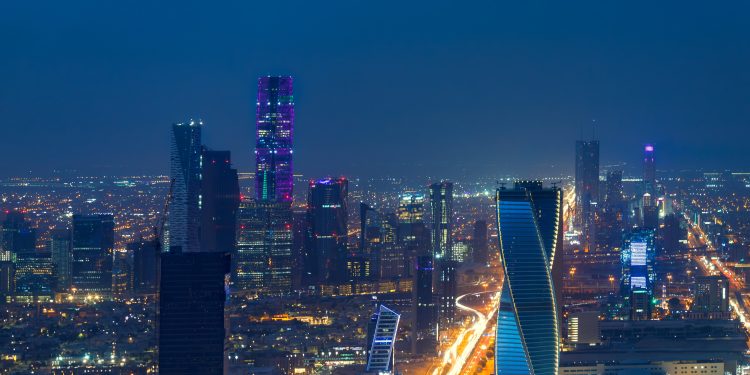Since taking the helm on June 21, 2017, Crown Prince Mohammed bin Salman has been the architect of an ambitious economic overhaul, catapulting the Saudi Arabian economy to the forefront of the G20’s fastest-growing nations.
As the chairman of the Council for Economic and Development Affairs, the Crown Prince has been instrumental in pioneering initiatives such as the initial public offering of Aramco, the globe’s most prolific oil company, and the inauguration of the state-of-the-art city of Neom.
The kingdom’s Council of Ministers has charged the Council for Economic and Development Affairs (Ceda) with the task of pinpointing and supervising the essential mechanisms for actualizing the nation’s Vision 2030.
Key objectives of the Vision 2030 include diversifying the industrial sector, job creation, uplifting women’s workforce involvement, enhancing foreign direct investment, and expanding the financial markets.
Overseeing the implementation of vision-aligned projects are the National Centre for Performance Measurement, the Delivery Unit, and the Project Management Office of Ceda, with public projections estimating a minimum expenditure of $1 trillion by Riyadh to fulfill these initiatives.
With many targets already achieved, one of the crowning successes has been the opening of new sectors for foreign direct investment.
In the realm of tourism, the kingdom is injecting $800 billion and has revised its visitor target to 150 million by the decade’s end.
Economists have observed that Saudi Arabia’s shift from an oil-dependent economy commenced years prior, with Hasnain Malik, head of emerging markets strategy at Tellimer, remarking that the transformative strides made are a testament to the Crown Prince’s influence.
Tax Revenues Contribute to Economic Expansion
With a 15 percent sales tax and 20 percent corporate tax, the kingdom also provides tax incentives for companies establishing their headquarters within its borders. Tax revenues surged to an estimated 352 billion riyals ($93.8 billion) last year, marking an 8.9 percent yearly increase. Income, profits, and capital gains taxation jumped nearly 46 percent to 36 billion riyals by December’s end, while taxes on goods and services saw a 5 percent rise to 264 billion riyals.
Although fuel subsidies continue to weigh heavily on the budget, the International Monetary Fund has urged the kingdom to accelerate subsidy reforms.
Non-oil exports have grown to 14.5 percent of the non-oil GDP, a 1.5 percentage point increase, though still shy of the 50 percent target, with the service sector driving much of this growth, according to James Swanston, Middle East and North Africa economist at Capital Economics.
Steady policy continuation is expected going forward.
Junaid Ansari, director of Investment strategy and research at Kuwait-based Kamco, anticipates no significant deviations in the kingdom’s economic policy trajectory, citing a smooth and gradual transformation that benefits the Saudi populace.
A Surge of Mega Projects
Development of new economic sectors, including healthcare, sports, renewables, technology and automotive, real estate, aerospace, defense, entertainment, leisure, retail, and mining, stands as a pivotal element of Vision 2030.
Driven by the Public Investment Fund (PIF) and its affiliates, the kingdom has seen a wave of megaprojects, ranging from colossal urban developments to opulent seaside resorts, rapidly expand over the past eight years.
These giga-projects, classified as monumental, once-in-a-generation endeavors, are reshaping the kingdom’s skyline and economic landscape.
Contract awards in the kingdom soared to a historic peak of $102.1 billion in 2023, a 64.5 percent increase from the previous year, with contracts spanning various industries, signaling comprehensive development within the kingdom.
Neom’s futuristic city alone has secured $237 billion in contracts, while The Red Sea Project, a massive tourism initiative announced in 2017, has seen $21 billion in contracts, according to Meed data.
PIF: Catalyst for Transformation
The PIF of Saudi Arabia, among the planets’ most colossal sovereign wealth funds, is central to the success of the Crown Prince’s vision.
With $925 billion in assets, the PIF is pivotal to the kingdom’s growth trajectory. In 2021, the PIF rolled out a five-year plan aiming to double its assets to $1.07 trillion, inject a minimum of $40 billion annually into the domestic market until 2025, and contribute to the creation of 1.8 million jobs.
Yasir Al Rumayyan, the PIF governor at the time, announced the fund’s commitment to bolster the non-oil economy by $320 billion through ten new sectors and the establishment of Saudi-based firms to stimulate economic activities and solidify government holdings.
In a strategic move, Saudi Arabia transferred an 8 percent stake in Aramco to the PIF, valued at approximately $163.6 billion, enhancing the fund’s assets. Expectations are high for Riyadh to continue divesting its shares in Aramco to finance its lofty ambitions.
Adjusting Vision 2030 Ambitions
While the kingdom remains dedicated to its key projects, evolving economic conditions and the vast financial commitments required have led to strategy reassessment.
In April, Saudi Arabia’s Finance Minister Mohammed Al Jadaan indicated the kingdom would recalibrate its approach to face current economic and geopolitical challenges, potentially scaling or hastening certain projects.
Details remain unclear on which aspects of Vision 2030 might be downsized or if the timeline for projects like the 170km-long The Line will be extended.
Originally intended to house 1.5 million residents, The Line, a linear city in Neom, is now expected to see only 2.4km completed by 2030.
Al Jadaan emphasized the kingdom’s pragmatic stance, willing to adapt, extend, downscale, or accelerate projects as needed.
Significant societal changes have already become evident, from a flourishing entertainment industry to increased women’s rights and workforce participation – all indicative of the Crown Prince’s transformative vision.
Analysts recognize this transformation as essential and overdue, acknowledging the social advancements that have touched every layer of Saudi society.


